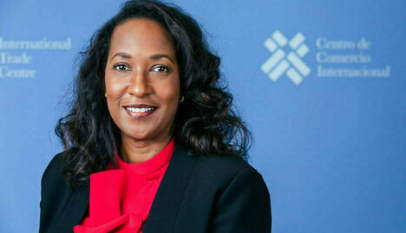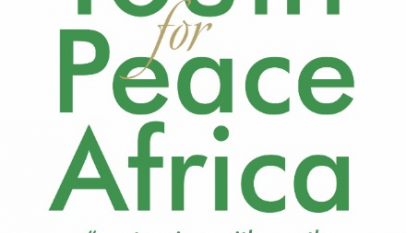Adolescents’ access to contraceptives and reaping the demographic dividends in Africa, By Mathew Danjuma Oguche
If African countries really want to harness the demographic dividend, its high-time we acknowledge fertility as the number one challenge for achieving sustainable development

There are more than 7 billion people on earth now, and roughly one in eight people suffer from a lack of food. The question of how many people the earth can support is a long-standing one which has become more serious as the world’s population is set to approach 10 billion by 2050. Hence, the current global concern is whether or not the balance between human needs and available resources is at a stable and sustainable equilibrium.
The countries predicted by the United Nations to see the highest population growth are in Africa, due to the continent’s high fertility rate and low access to modern contraceptives. By 2050, the population of Nigeria is estimated to reach a staggering 400 million, which would make it the 3rd most populous nation in the world after India and China.
With limited resources to cater for this huge population, the catastrophic consequences of this unsustainable growth include increase in maternal and infant mortality, food insecurity, unemployment and more general economic hardship. This will also aggravate the current migration crisis and force youth into the arms of terror groups across the Sahel who will seek to recruit from the large pool of vulnerable and poor families with few options.
The 2017 World Population Day was observed in Nigeria and across the rest of the world under the theme: “Family Planning: Empowering People, Developing Nations” in recognition of the critical importance of access to safe family planning (FP) services, as a basic human right. FP is also central to achieving gender equality, women empowerment, and is a key factor in reducing poverty.
Adolescents have not always featured prominently on the development agenda, but increasingly there is a realization that their futures depend on giving them the opportunity to plan their own families. With 1.2 billion adolescents – nearly 9 out of 10 of whom live in developing countries – we are definitely witnessing the largest cohort of young people the world has ever known.
Doubtlessly, young people have the potential to bring about socioeconomic development of their societies however, they can only transform the world if they survive and thrive! Thus, adolescence is a very critical phase in the physical, cognitive, emotional, and social development of youth. At present, too few adolescents are able to reach their potentials; it is estimated that 1.2 million adolescents died of preventable and treatable causes, including pregnancy-and-childbirth related complications globally, in 2015.
Furthermore, in 2015 there were an estimated 1.8 million adolescents aged 10-19 years living with HIV, young people aged 15-24 years accounted for an estimated 35% of new HIV infections among adults aged 15+ years; and older adolescents (ages 15-19) were the only age group among which AIDS-related deaths were not declining in 2015.
In addition, millions of adolescents have found themselves displaced by conflicts and disasters and therefore in desperate need of humanitarian assistance. This is especially critical for adolescent girls, as crisis heightens their vulnerability exposing them to sexual and gender based violence. These points to the enormity of the moral and economic costs of failing to ensure adolescents’ have access to contraceptives!
Giving a woman or girl the right to determine freely for themselves whether to, when to, and how many children to have means transforming their lives as they will not have unintended pregnancies exposing them to the risk of unsafe abortions leading to maternal mortality. They will choose to have fewer children and invest more on those children; making them healthier thus of higher life expectances as well as given them access to quality education. This automatically gives them competitive advantage in the labour market.
If this happens on an aggregate level in developing countries, demographic dividend which is the economic growth created when a society shifts from an age structure dominated by child dependents to one with a greater proportion of working-age adults, will be achieved. Increased access to contraceptives leads to reduction in fertility which creates a change in the population age structure to one with fewer young people and more people of working age.
Demographic dividend is a real phenomenon and the experience of East Asian countries like Singapore and Malaysia speaks volumes of the additional economic growth that may be achieved if countries reduce fertility and invest in their human capital, by specifically ensuring access to quality education, healthcare and gainful employment.
If African countries really want to harness the demographic dividend, its high-time we acknowledge fertility as the number one challenge for achieving sustainable development. And for African countries to achieve long-term sustainable development, their development plans must be in line with those of the Asian Tigers. For this to happen, countries need to refocus their investment to issues around achieving fertility decline.
In 2016, pockets of successes were recorded in the area of access to FP services, for example, 82 million unintended pregnancies, 25 million unsafe abortions and 124,000 maternal deaths were averted. However, the reintroduction of the “Global gag rule”, otherwise known as the Mexico City Policy by President Trump’s administration, has created a huge funding gap and many developing countries are about to face additional challenges as a result of this reduced funding.
With this huge funding gap, it is time for national governments in developing countries to take ownership of investment in family planning, whilst also putting adolescents and young people at the centre of this. It is also necessary for governments to set up structures to overcome the culture and traditional barriers that inhibit adolescents’ access to information on comprehensive sex education and modern contraception.
Oguche is a sexual and reproductive rights advocate













